Our journey began in August 2017. We picked up Jocelyn from science camp in Drumheller when we knew something was not right. After several visits to the clinic over two weeks, we noticed Jocelyn progressively getting worse.
She was very pale and weak and just felt crappy. On August 13th we took Jocelyn in for routine blood work, and then again on the 17th at the walk-in clinic. We took her in one more time on the 21st for a glucose fasting test because the doctor thought she could be diabetic. On the 25th we met with an endocrinologist who instructed us on how to use a glucometer and was going to send us home. Our intuition kept telling us that something was wrong, so we asked the doctor if it could be something else since she did not look or feel well.

The endocrinologist examined her one more time and advised us to take her for more blood work as she agreed that Jocelyn did not look well. We headed to the urgent care clinic where her blood count indicated she likely had leukemia. Jocelyn was transported by ambulance to the Alberta’s Children Hospital.
Not even the emergency doctor at the children’s hospital could believe that she was cracking jokes with a hemoglobin count in the 30s!
A few days later, our world turned upside down. Jocelyn was diagnosed with leukemia. We spent the next few weeks living at the hospital. We had to learn an entirely new vocabulary and so many new procedures. All the different chemotherapy drug names, lumbar punctures, bone marrow extracts, and surgery for the IVAD placement were overwhelming.

Even after we could go home, we had to keep learning about the different assortment of pills, instructions and clinic appointments. But we never let it stop us from fulfilling responsibilities at home and work.

Through all the phases of treatment and the different challenges that each brought, Jocelyn always grew stronger. As she entered her interim maintenance phase over the holidays, one of the more difficult periods of her treatment, I described it to my friends as brutal and I wasn’t the one going through treatment. At the time, we would stay at the hospital for three or four nights while we waited for the four cycles of high-dose chemotherapy to clear her system before going home.
But the relief of finally returning home sours quickly. The treatment kicks in and starts hitting hard. I was not prepared for the reality that was: Go to hospital, get treatment, come home and watch Jocelyn weaken to the point where I would wake up and check that she was still breathing. But she always stayed strong.
In the final months before reaching our goal phase, long-term maintenance, it was difficult for Jocelyn and challenging for us. Procedural anxiety alongside mental and physical strains followed us during every visit. But achieving long-term maintenance was all we were focused on.
As we went through each phase, Kids Cancer Care was there for us. From the Pizza Nights where volunteers would serve pizza to exhausted and emotionally drained kids and parents, to the PEER exercise program where Jocelyn could blow off some steam and rebuild her strength through exercise.

It was wonderful to see Jocelyn laugh, have fun and push herself with people who understood. It was not easy to convince her to go, especially when we’d already been at the hospital for hours of treatment, but she was always better for it.
They also gave Jocelyn the opportunity to go to Camp Kindle. Although she was hesitant at first, she fondly remembers her time there and would love to do it again. She even told me that ‘Maybe someday, I can become a counsellor and help kids like me.’

With all the emotional and mental strain from the procedures, chemotherapies, scans and medical equipment, Jocelyn’s thoughts took a dive. She wondered what would happen with her friends and family if she didn’t make it. Jocelyn was scared to voice her thoughts because everyone was counting on her to make it through. She was isolated from her friends since she had a weak immune system and didn’t know if she would ever get back to her former life. That’s a lot for a kid to carry around inside.
Kids Cancer Care programs helped her feel like a normal kid. She was able to go to summer camp where she didn’t need to worry about getting sick. She was surrounded by amazing volunteers, nurses and kids who faced similar struggles. And she no longer felt disconnected. Kids Cancer Care helped Jocelyn work through all the struggles she faced so she can return to a normal life again. She is now part of the Teen Leadership Program and continues to grow every day.

Earlier in Jocelyn’s treatment I discovered a charity cycling event called Tour for Kids – Alberta with proceeds going to Camp Kindle.
As a cyclist, I was shocked that I’d never heard about this event and even more shocked that I registered despite adding 25 pounds of stress eating to my frame! But this was the least I could do to support Jocelyn and other kids battling cancer. I would train and finish this 300-kilometre ride, even if it killed me. If my baby girl could endure what she had, then I could do this ride. If my bike squealed in protest, so be it!

I know what it’s like. You’re constantly bombarded with ‘please donate’ or ‘please sponsor’ from all corners and causes, but you STILL choose to give.
Maybe in the back of our minds there is still a lingering fear: “it could happen to me or to someone I love” and god forbid cancer ever strike the heart of your world.
But I promise you this: if that should happen, Kids Cancer Care will be there for you and your family.

- Omar Pricca, Jocelyn’s dad
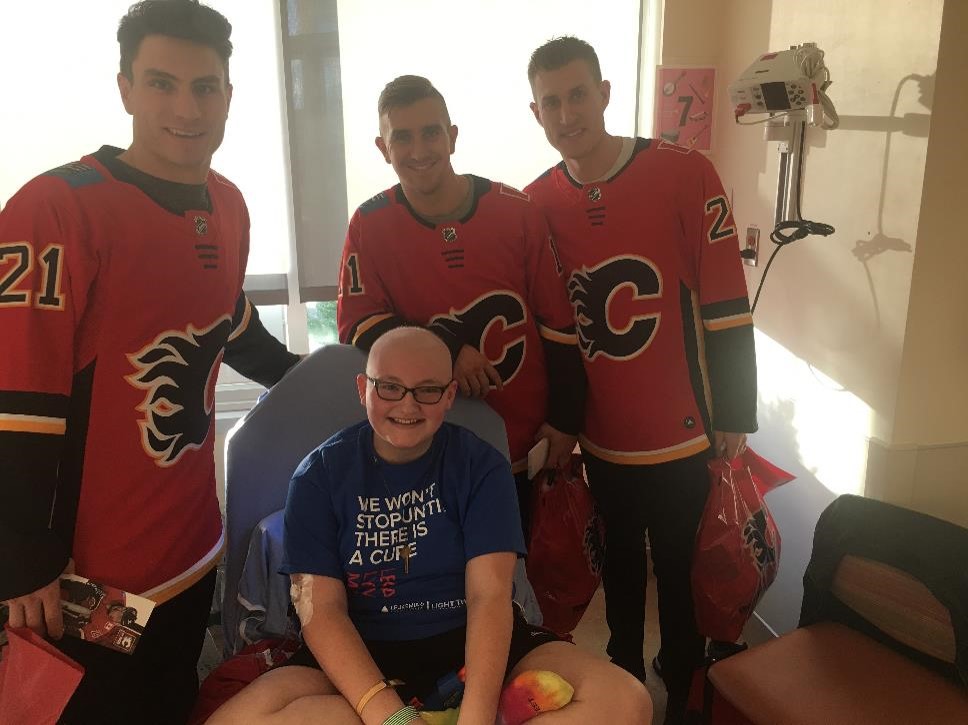
Jocelyn with the Calgary Flames. 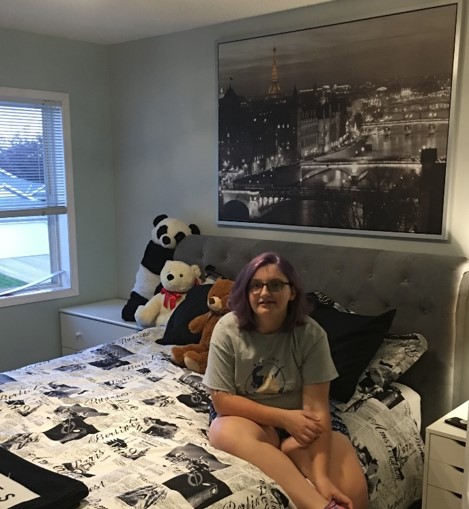
Jocelyn returning home. 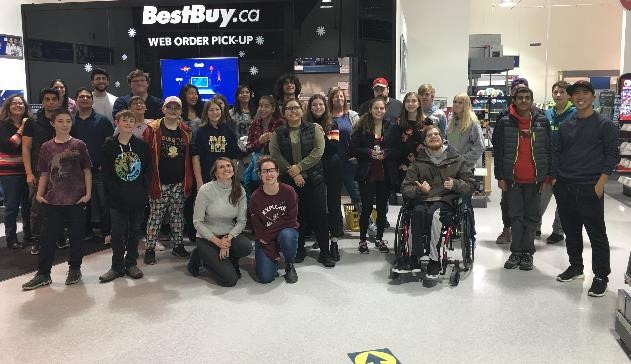
Jocelyn at the BestBuy Teen Night. 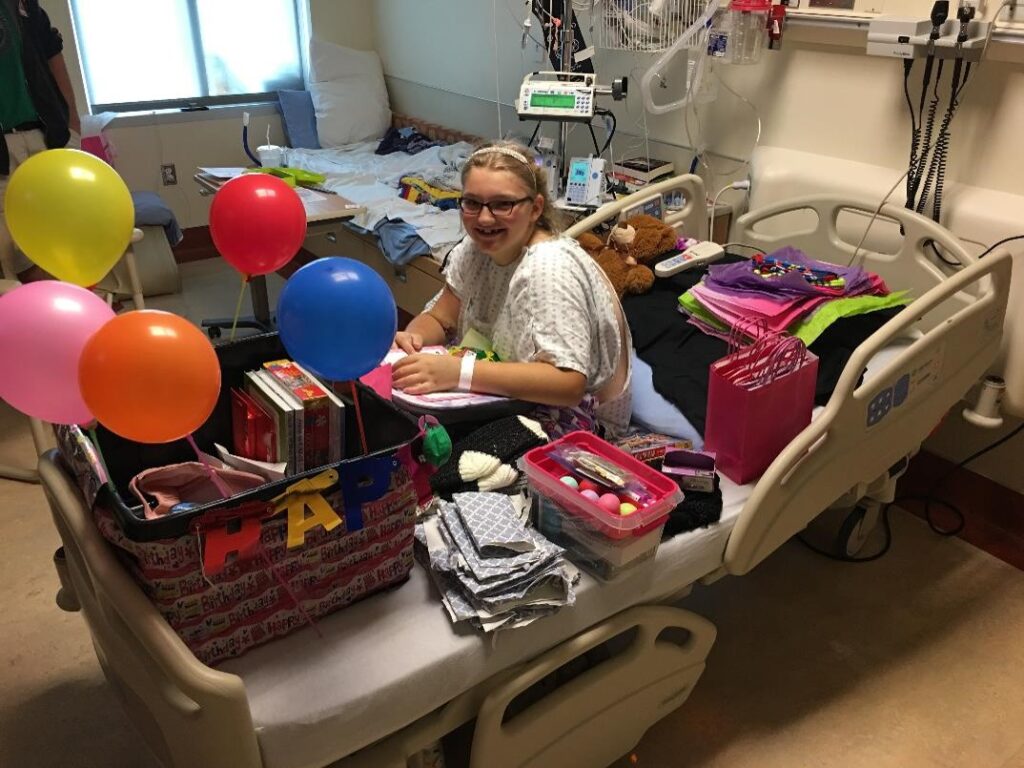
Jocelyn celebrating her 13th birthday at the hospital. 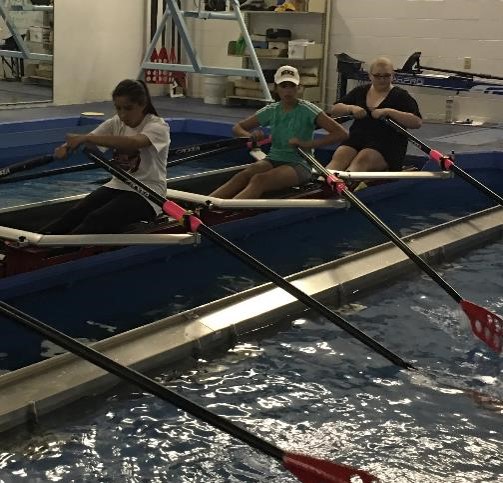
Jocelyn doing rowing exercises at the PEER exercise program. 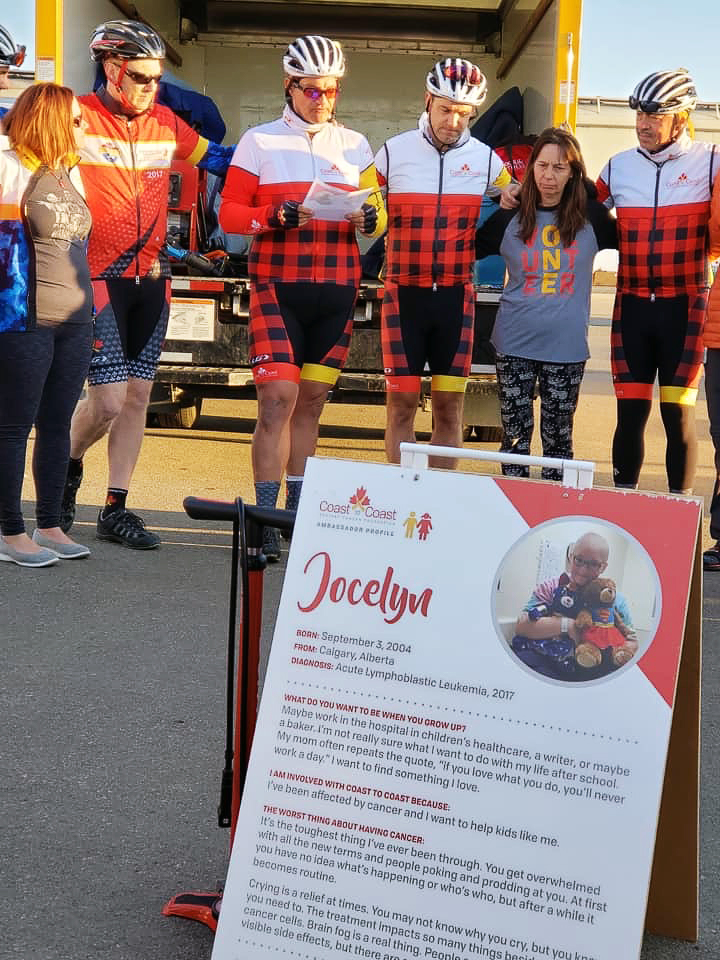
Omar and cyclists gathering for a morning dedication circle. 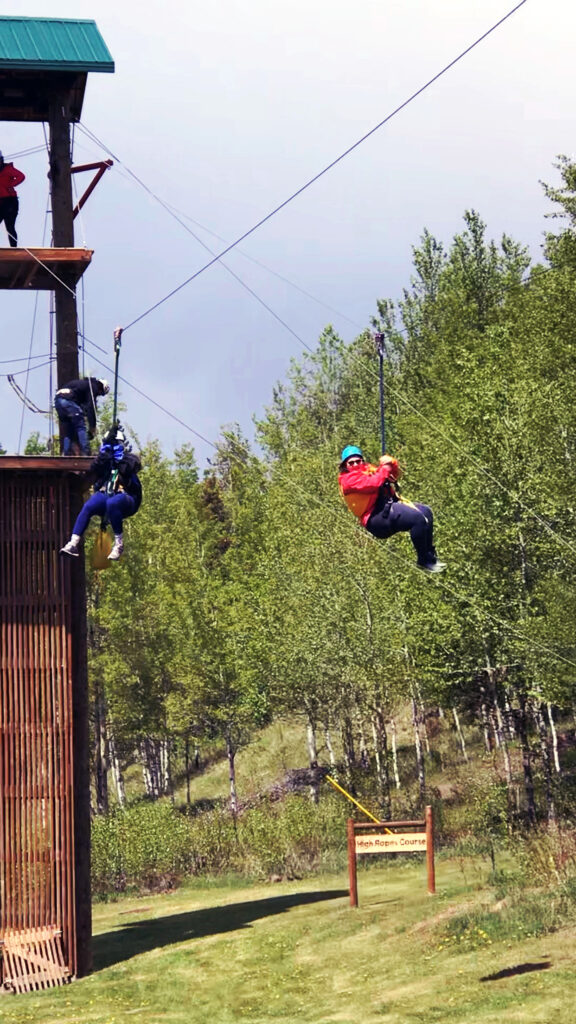
Jocelyn on the zipline. She absolutely LOVES it.














